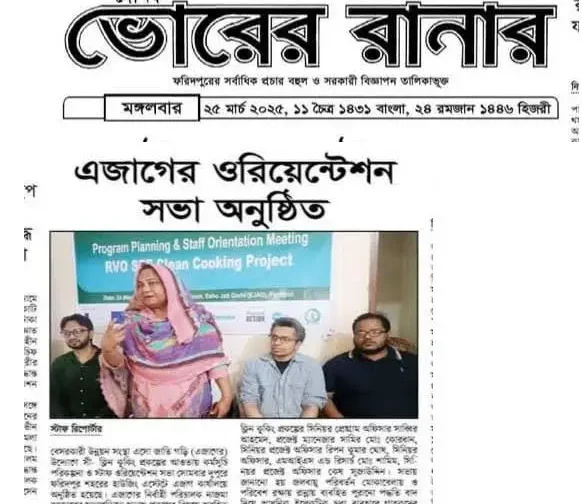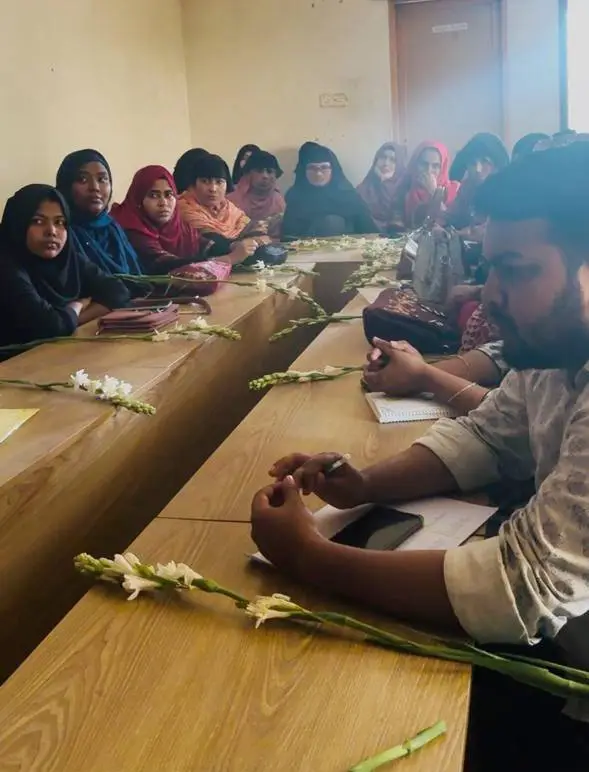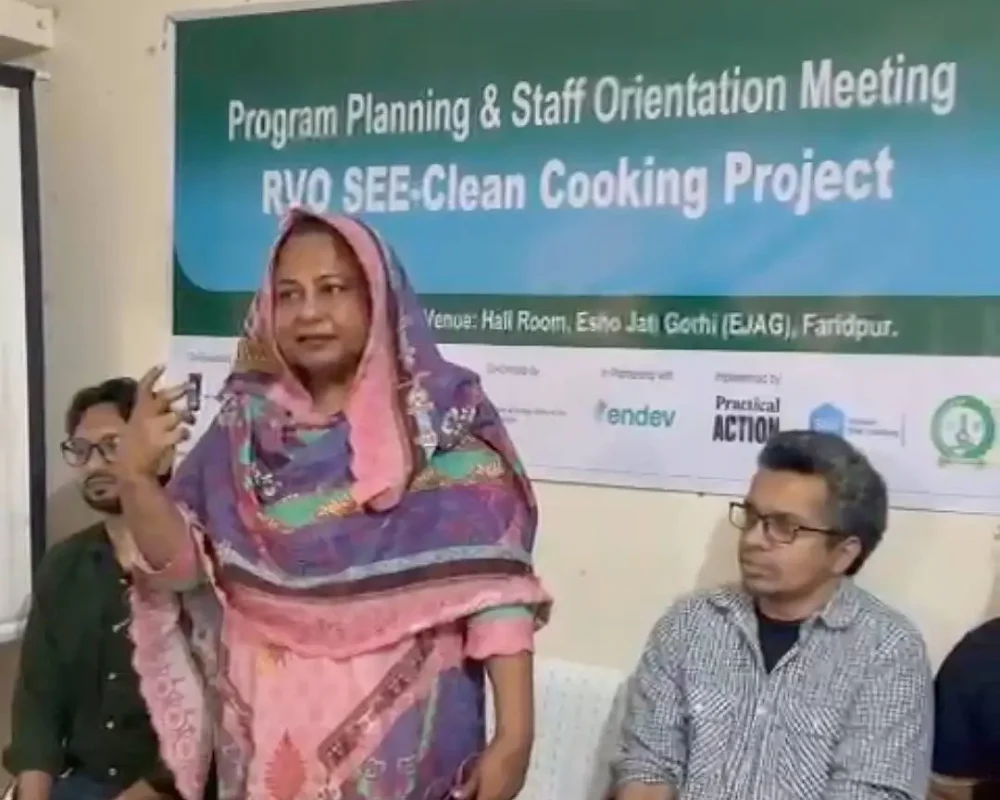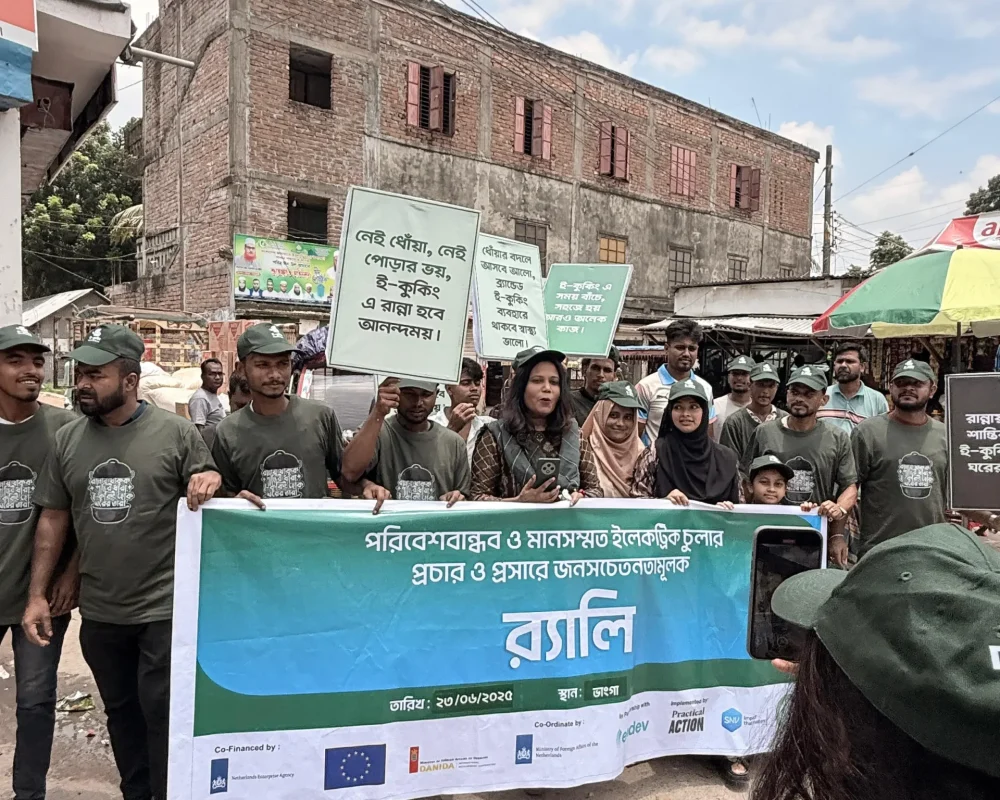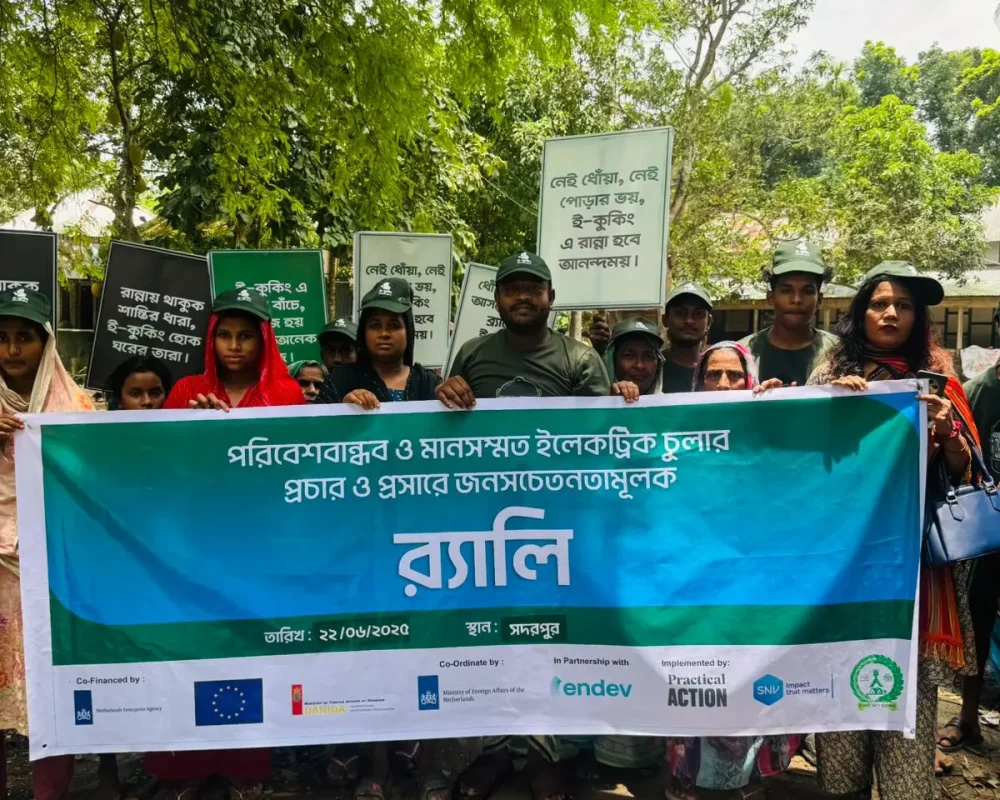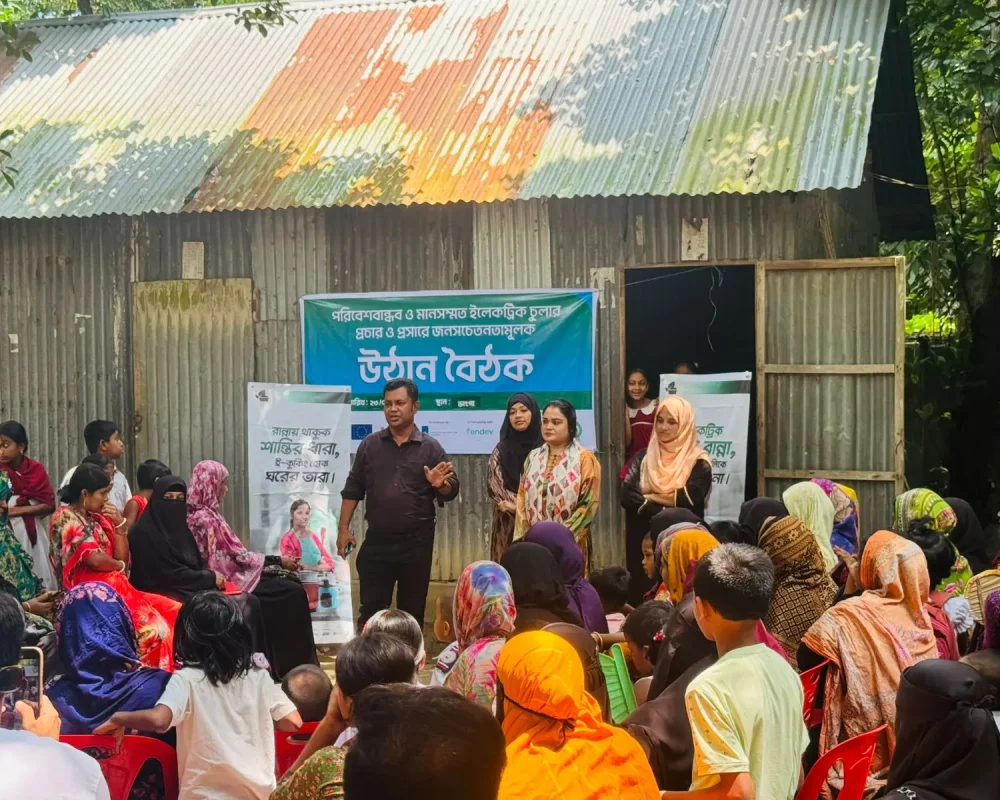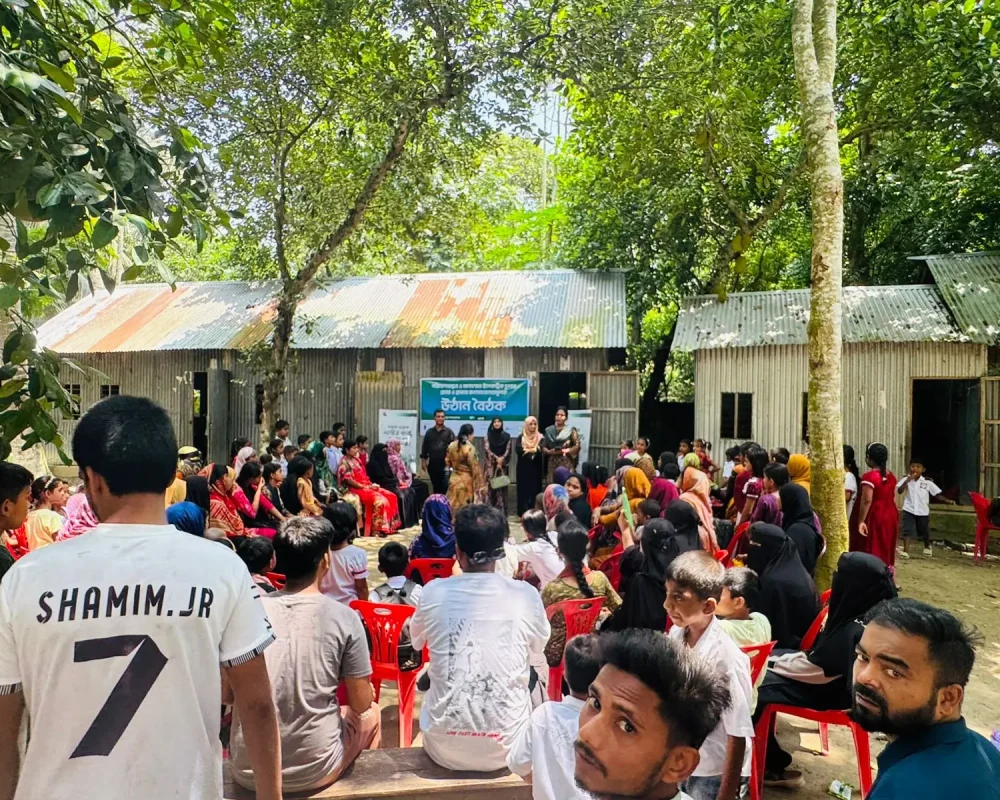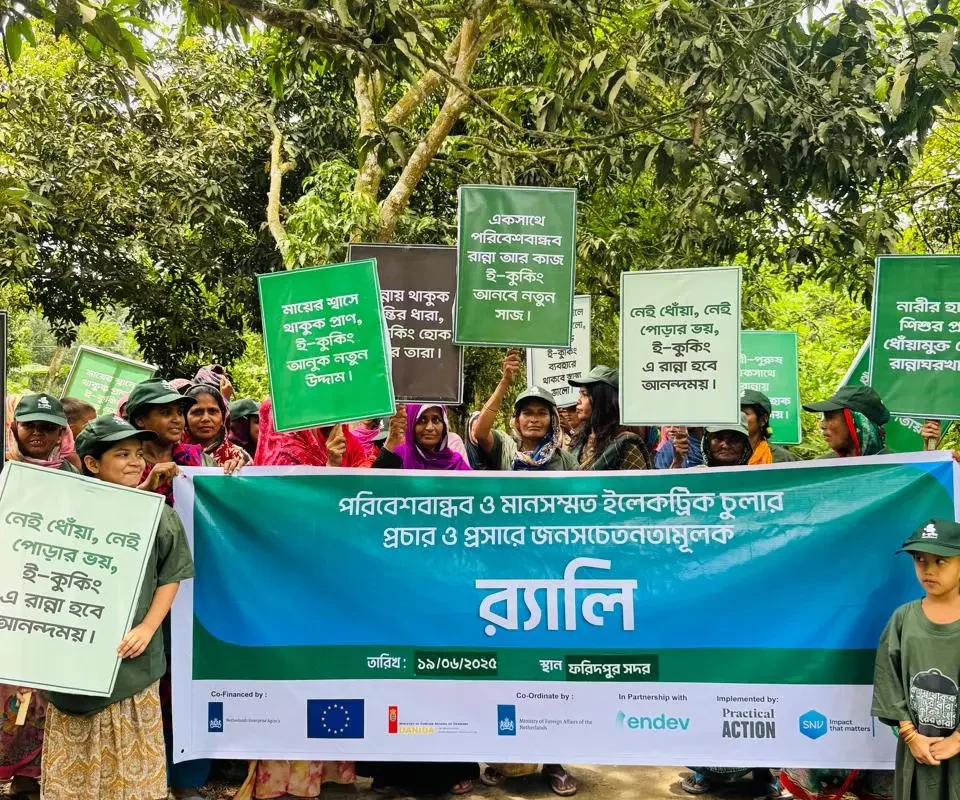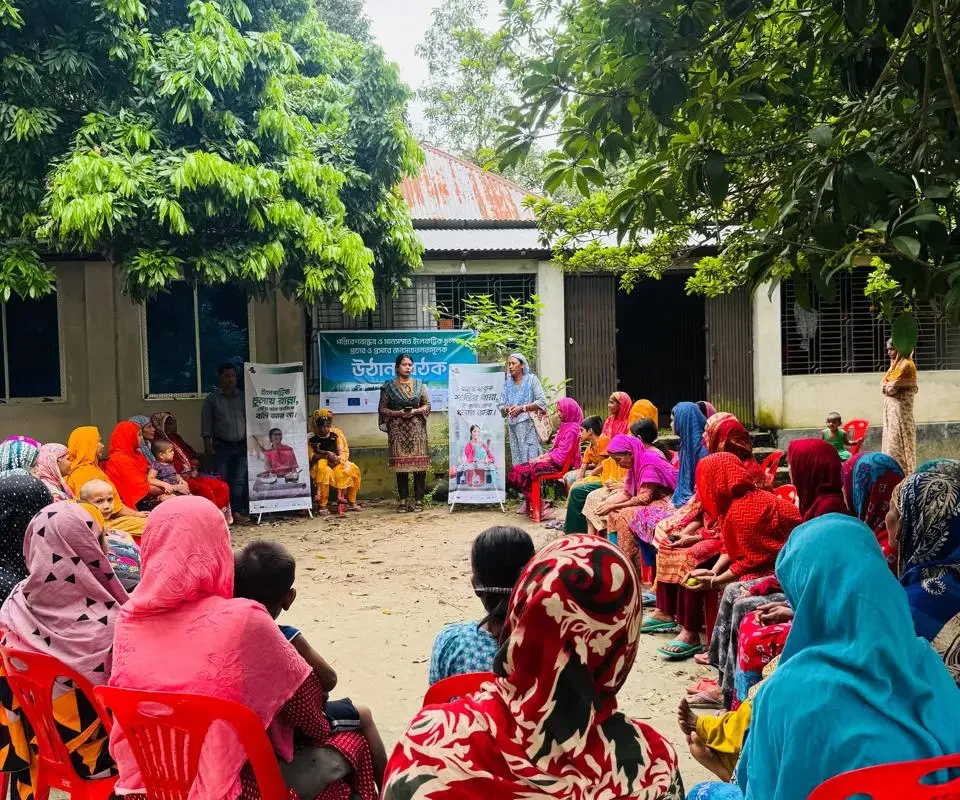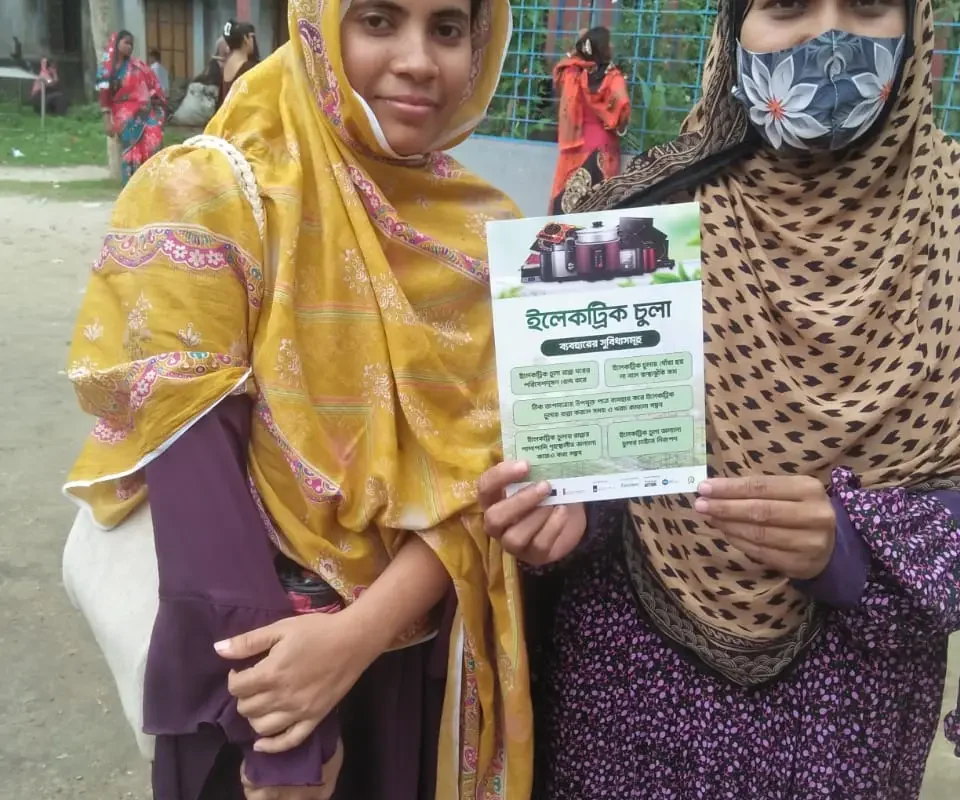- Implemented by: Esho Jati Gorhi (EJAG)Main Donor: RVO (Netherlands Enterprise Agency)
Fund Supported by: Practical Action
Esho Jati Gorhi (EJAG) has been implementing the RVO SEE-Clean Cooking Project since March, 2025. As part of this initiative, Practical Action provides financial support through the Innovation Grant Fund (IGF) to foster scalable, forward-thinking solutions. We gratefully acknowledge the financial support received for this project. EJAG will be awarded a grant of BDT 34,29,495 (approximately £25,300) to implement project activities aimed at promoting electric cooking solutions and strengthening the clean cooking ecosystem in Faridpur district. EJAG has entered into a formal grant agreement with Practical Action to implement a milestone-based project under the IGF framework. EJAG is working to accelerate the adoption of clean, electric cooking appliances, particularly among underserved communities in Faridpur District. The project emphasizes community engagement, awareness building, market development, and behavioral change by focusing especially on empowering women as key agents of transformation.

